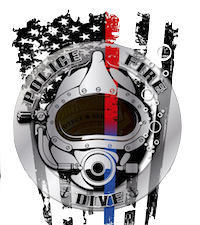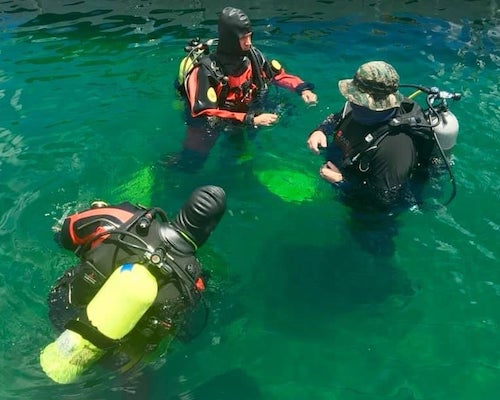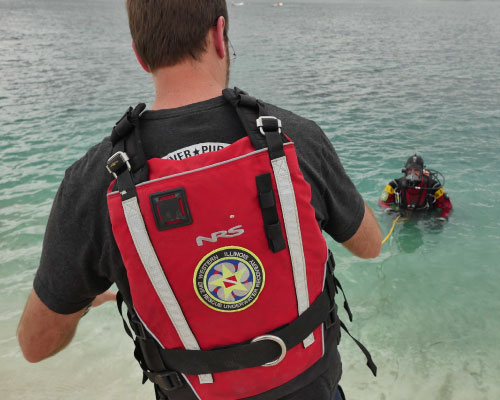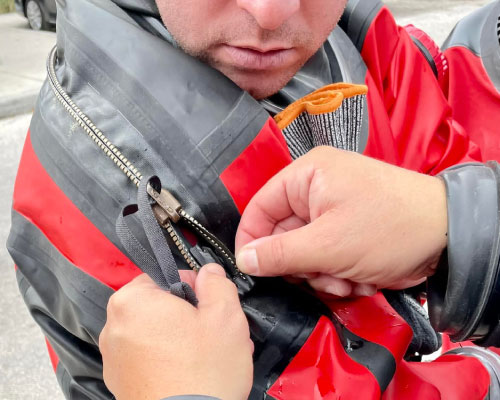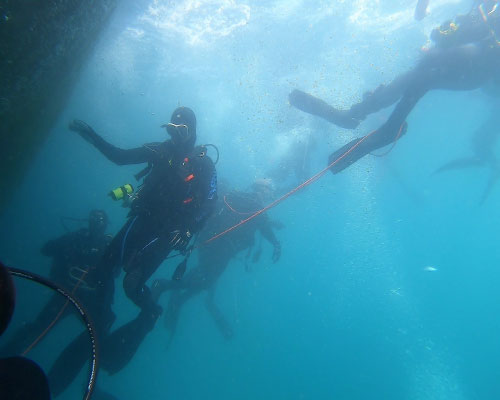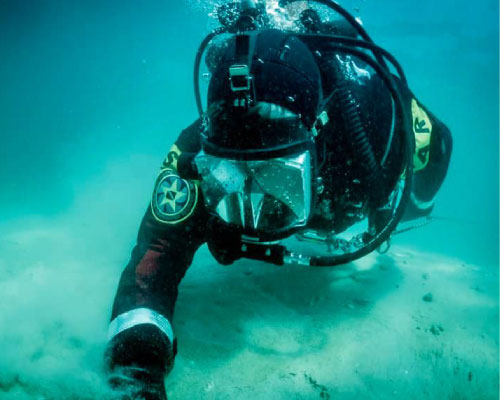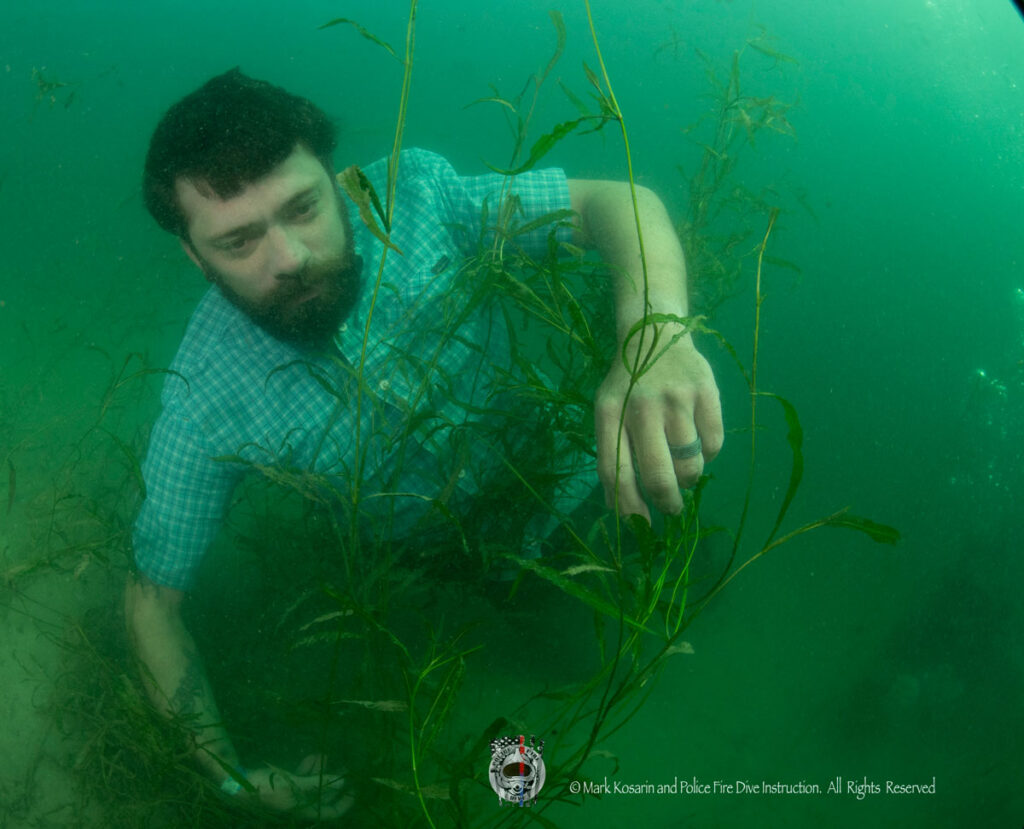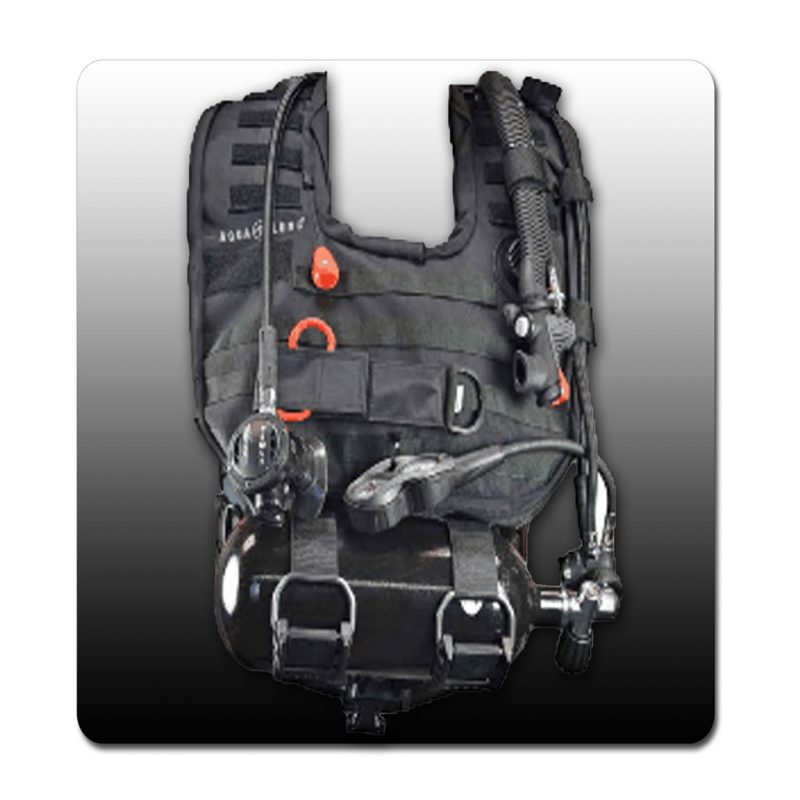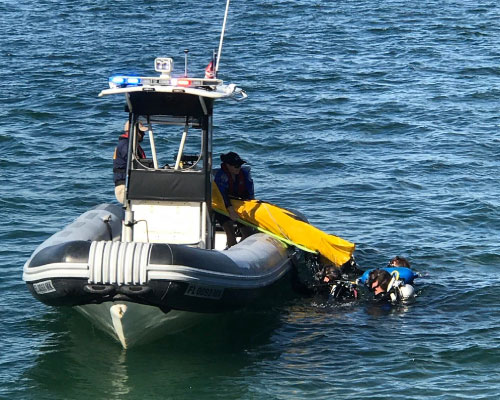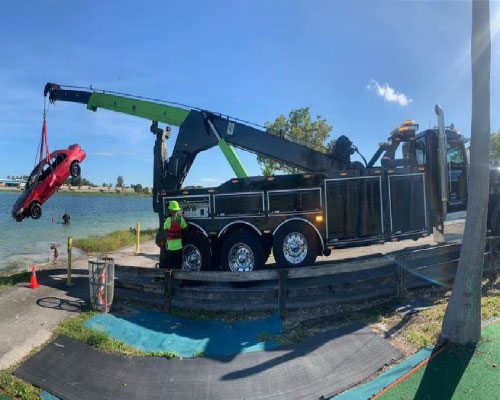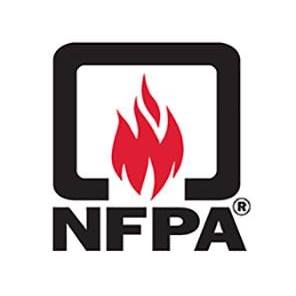
Emergency Response Diving 2 (ERD2)
This course will examine:
- Lifting techniques
- Encapsulation
- A victim’s death
- The mechanics of drowning
- Handling of Remains
- Environmental issues
- Full face mask and dry suit use
The ERD II Course furthers the public safety diver’s knowledge and advances skill sets for emergency response diving. The ERD II Course will examine lifting techniques, encapsulation, a victim’s death, as well as, physiological changes a submerged body undergoes, mechanics of drowning, handling of remains, environmental issues, full face mask and dry suit use.
Who this course is for:
- Any certified ERD I Public Safety Diver or team member who engages in rescue and recovery operations
- Any certified ERD I Public Safety Diver or team member looking to increase their diver awareness and skills
- Any certified ERD I Public Safety Diver or team member who is seeking the ability to enroll in ERDI II Ops Component training
- Any certified ERD I Public Safety Diver or team member looking to become an ERDI Supervisor
Course prerequisites:
- Minimum age 18
- ERD I or equivalent
- 10 or more logged public safety dives, either training or operational dives, beyond ERD I with a recognized public safety team
- CPR, AED, O2, AND first aid certified or equivalents
What you can expect to learn:
- Mechanics of drowning, including near drowning
- Physiological changes to human remains
- Crime scene identification and removal of crime scene evidence
- Encapsulation considerations
- Lifting techniques and considerations
- Advanced skills for dry suit and full face mask diving
- Learning decontamination procedures
ERD II students will successfully locate an object, rig a lift bag and lift the object to the surface while maintaining evidence continuity. They will discuss the potential hazards and benefits of various lifting techniques and considerations for evidence recovery. Students will also learn physiological changes that occur to human remains and how to handle a body/body bag. ERD II students should prepare to spend several hours in their dry suits, full face mask, and personal protective equipment.
What’s in it for you and your team?
- After successful completion of the ERD II course, participants will be able to enroll in ERDI Ops Components, ERDI Supervisor courses as well as engage in rescue and recovery operations with their recognized public safety dive team
ERD II minimum requirements:
- Minimum of 80 percent on the ERD II written test, 100 percent remediation
- Watermanship skills:
- 800 metre mask, snorkel, and fins swim non-stop. Use of arms is not permitted; recommend completion time is 16 minutes
- 500 metre distance swim, non-stop, without use of swim aids; recommended completion time is 16 minutes
- 100 metre buddy tow in full scuba equipment; recommended completion time is 4 minutes
- Survival float without aids for 15 minutes; during the last two minutes the student will keep their hands above the waterline
- Confined water skills:
- Evaluation of basic scuba skills including redundant air source use
- Dry suit skills including:
- Proper donning, proper weighting, inflation and deflation, simulation stuck inflation valve, recovery from inverted position, and buoyancy skills
- Full face mask skills including:
- Equipment set up, proper donning and adjustment, entry technique, equalization, clearing partially flooded, remove and replace mask underwater, remove mask, and utilization of redundant air source
- Open water skills:
- Successful completion of 6 open water dives in simulated to actual incident response
- Students are required to successfully complete the following skills:
- Scene size-up, team briefing, deploying the team, inflate/deflate dry suit, disconnect/connect dry suit hose underwater, recover from inverted position, clear a partially flooded full face mask, remove and replace full face mask, remove full face mask and utilize redundant air source to ascend, locate an object, successfully rig a lift bag and lift the object to the surface while maintaining evidence continuity, debrief and record each dive with team log and diver log, and perform a post diver evaluation both medical and psychological
